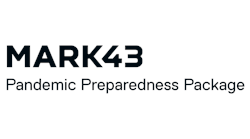Transform Your Mission: How Police Reform Can Increase Public Trust
Law enforcement’s mission is to serve people by maintaining the rules and policies a given community chooses for its own best interests. The details change from place to place, but anywhere you go, police work is about helping communities function well. And much like a good referee, a good officer is one you generally don’t notice—after all, the policies aren’t about the cops, the policies are about the people.
Why do we need to rethink the police mission?
Because right now, poor clarity on local police missions is hurting the integrity of departments and straining the relationships with the communities they serve. Whether or not you believe your department is doing everything right, ultimately if a community doesn’t trust or respect the local police, it’s on the department to justify and improve that.
It’s time to start rethinking your mission and work to better understand how the actions and processes of your department can positively or negatively impact your city.
Let’s use the old three-legged stool metaphor here. We need three things to hold up a platform of trust and effectiveness for police departments. We’ll even use ABC to name those legs.
Align
This means starting with the outcomes in mind. Departments must choose the right mission focus for their community, as well as the most effective policies, and then support those decisions with the best training and the smartest approaches to compliance.
The mission isn’t something police departments choose on their own. Law enforcement agencies have a sworn duty to the Constitution and to the laws of the land. From there, marching orders and the local expressions of the department’s mission depend heavily on a political system. And then, as people with the most interaction with the public, officerss have a hugely important connection with civic leaders, clergy, business owners, and neighborhoods. Finally, the work officers are asked to do needs to be clear, and the training for the work needs to be right. If an officer is not clear about what’s appropriate or where “cover” from above will stop, he will surely make wrong choices one way or the other even as his passion for his job fades to nothing. No department will withstand serious challenges if it doesn’t have alignment with law, political leadership, civic partners, and team buy-in.
Reform is coming, and you have a choice about what it will mean for you. Data will help you shape your future, and your best data will come from the voice of your people, your community, and the specialized understandings that make you successful doing the sacred work you do.
Documentation processes and document management solutions keep everyone true to a chosen alignment. Police departments don’t stand on their own, but as we’re seeing in city after city, they can surely be betrayed and left standing alone.
Build
There are few jobs in the world where every morning a worker says goodbye to their family might be the day they say goodbye forever. There are even fewer jobs where the work is to spend the day engaging with people in their worst moments, being a literal representation of the voice of the community in response to that person’s worst moment, and often encountering scenes they simply cannot take home to their families. This is serious, sacred work. Most people are not cut out for it.
Current reform efforts, from the White House on down, are calling for the creation of a database of officers who have been decertified or in some other way lost their license to do police work. We have spent the last ten years creating it, in partnership with the International Association of Directors of Law Enforcement Standards and Training. It’s called the National Decertification Index (NDI) and you can access it online. This is a valuable tool in your hiring process and helps to keep the “bad apples” out of your department.
The NDI will screen for people who have already proven they’re not cut out for police work, but there are many other ways to test personality and temperament fit for your culture. It is disappointing to think that the personality screening process at an average fastfood restaurant exceeds what you’ll find in most police departments. Culture is king when building a team to deal with the stresses of serving a very demanding customer base.
Culture is king for you, too. I do not mean the vibe of the department or morale—those are results of culture, not the culture itself. Culture is the rules and structure by which everyone agrees to play. Those rules are the basis for loyalty, as well as the basis for ending loyalties. If your culture doesn’t build the second part of that truth into the process, you’ll end up with the worst of “blue line” loyalties and all of the personal, family, team, and community costs that come with making too much room for traits and behaviors you’d never respect and would never tolerate in your own kids.
Building and keeping the rules that build culture is difficult, especially if a leader tries to do it by force of personality. Things like onboarding, FTO, officer performance management, monitoring, intervention, training, policy, compliance, case management, budgeting, surveying, and reporting should live in an integrated software solution so leaders can focus on things technology cannot do. The failure to implement technology where it will build culture and save lives is often an expression of ignorance or ego.
Communicate
We’re in a moment of opportunity when it comes to justice and truth in America. There is a deep pressure toward transparency and accountability that will create bad future policy if the moment isn’t embraced. I’d urge you to look past the way the message is being delivered to see the opportunity to build connections, teach communities, and help police build back trust in society. You are where politics and law meet everyday life. Going forward, police departments must develop a voice. Make transparency a good thing, both within your department and with your community.
When you’re challenged about why a gun was drawn on someone with a knife, be prepared to teach the rule “if you’re in a fair fight your tactics suck,” and why that rule makes sense for the peacekeeper and for the community. Teach what “awful but lawful” means and what those moments are like for the dispatchers and officers involved. Explain your use-of-force protocols. Narrate videos explaining where an officer is within the bounds of policy and where they get to the edge or cross over. Discuss the policies honestly and patiently. Invite discussions about the best ways to measure the value of your department in your community (the odds are very good that your people and your community will both prefer whatever you come up with more than what you have today).
You need a brand strategy and a chosen voice to the community, as well as a policy governing immediate communication responses when something happens in your community. You are part of the community, answerable to a bureaucratic system, but you have a unique role when it comes to listening and responding to your people and to your community.
Reform is coming, and you have a choice about what it will mean for you. Data will help you shape your future, and your best data will come from the voice of your people, your community, and the specialized understandings that make you successful doing the sacred work you do. A toolset that helps you gather data, listen more effectively, and share your realities has always been important, but today it is absolutely essential.
What do you get if you Align, Build, and Communicate around the right mission for your department? You get a platform for justice—both in the sense that justice is more effectively served, and in the sense that the people policing the chosen rules of our communities have more to say and more ability to guide how communities thrive.
When you Align, Build, and Communicate, you bring your people home from the island of “sheepdog” metaphors that leave them isolated and suffering, and instead honor them as servants of justice who are willing to engage significant risks in submission to the code and character that drives them.
When you Align, Build, and Communicate, you end up with a winnable local mission and you fulfill the purposes for which your department and most of your people were created.

Ari Vidali | Founder & CEO of Envisage Technologies
Ari Vidali is Founder & CEO of Envisage Technologies, creators of the Acadis Readiness Suite, a comprehensive, modular training management framework that modernizes and streamlines the complex operations of nearly 11,000 public safety agencies, serving over 2 million first responders via their FirstForward online training network.
In his 20-year career in high-technology, Mr. Vidali has been the lead founder for 5 high-tech enterprises. Throughout his career, he has been instrumental in developing innovative readiness strategies for military, public safety and law enforcement commands.
Mr. Vidali has consulted for the Federal Government, Homeland Security, Public Safety, Military, Law Enforcement, First Responder, Higher Education and Medical industries. He is an acting committee member for the National Congress for Secure Communities, a technology advisory board member of the International Association of Directors of Law Enforcement Standards and Training (IADLEST) and an active Advisory Board member for the Bloomington Technology Partnership.
As an industry expert, inventor, speaker and author on the subjects of technology in support of readiness, he has been featured in numerous national and international publications including the NATO Science for Peace and Security IOS Press. Industry awards include the SLOAN-C best Practices Award and EISTA Best Whitepaper Award.



